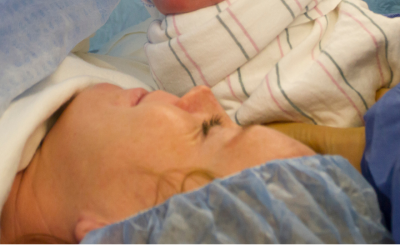
Combining lab results and clinical characteristics to predict HELLP syndrome
First-Trimester Screening for HELLP Syndrome—Prediction Model Based on MicroRNA Biomarkers and Maternal Clinical Characteristics
Hypertensive disorders of pregnancy and cardiovascular disease are intimately related. They share many of the same risk factors, mechanisms for disease, and biological markers. For this study, researchers measured tiny pieces of RNA in a pregnant woman’s blood (called microRNAs) during early pregnancy. Researchers asked if microRNAs that are linked to cardiovascular disease in non-pregnant people, could help predict HELLP syndrome (a severe variant of preeclampsia that affects the liver, red blood cells, and platelets).
The study results show good prediction performance for six microRNAs measured in early pregnancy (10-13 weeks gestation) to predict HELLP syndrome later in pregnancy. When microRNA results were combined with HELLP syndrome risk factors (like age, BMI, history of HELLP syndrome, etc.), about 90% of HELLP syndrome cases were predicted (with a 10% false positive rate). This study is a novel approach that combines clinical characteristics and microRNA information in early pregnancy to predict HELLP syndrome. The study was small and should be replicated in a larger study with more patients to support these findings.
More information on HELLP syndrome.
Link: https://www.mdpi.com/1422-0067/24/6/5177
Citation: Hromadnikova, I.; Kotlabova, K.; Krofta, L. First-Trimester Screening for HELLP Syndrome—Prediction Model Based on MicroRNA Biomarkers and Maternal Clinical Characteristics. Int. J. Mol. Sci. 2023, 24, 5177. https://doi.org/10.3390/ijms24065177
About Research Roundup
Each quarter, our team of science writers reviews the most current research studies related to hypertensive disorders of pregnancy and summarizes those studies of greatest interest and potential impact to our community, including research studies related to risk assessment, diagnosis, prevention, and treatment. Special thanks to our volunteer research team, who under the leadership of Dr. Elizabeth Sutton, make Research Roundup possible and to our Patient Advisory Council, who reviews these materials from the patient perspective.
Related Articles

Your story is needed to improve outcomes for moms like you. Add your voice to critical preeclampsia research to ensure that every story is heard.

Frequently asked questions about the Preeclampsia Registry, a patient-driven registry and biobank.

The Preeclampsia Foundation offers research funding, study recruitment, and other patient engagement services to researchers.

We provide research grant funding to advance progress towards detection, prevention, or treatment of preeclampsia, HELLP syndrome, and other hypertensive disorders of pregnancy.

How does preeclampsia affect health after pregnancy? Preeclampsia doesn’t always end with delivery. It is now recognized as an early warning sign for future cardiovascular disease. Women who h...

Recent findings in preeclampsia research have shown that preeclampsia likely has at least two variants – an early onset and a late onset variant. Early onset is typically defined as before 34 we...

Preeclampsia is a pregnancy complication marked by new-onset high blood pressure and signs of stress on organs such as the kidneys, liver, and brain. While much attention is often given to preterm dis...

Preeclampsia is a serious problem that can happen during pregnancy. It often affects the brain and can cause headaches, vision problems, strong reflexes, and seizures (called eclampsia). In this study...

Pregnancy offers a unique window into a woman’s future heart and cardiovascular health. Conditions such as hypertensive disorders of pregnancy (HDP) which include gestational hypertension, preec...


